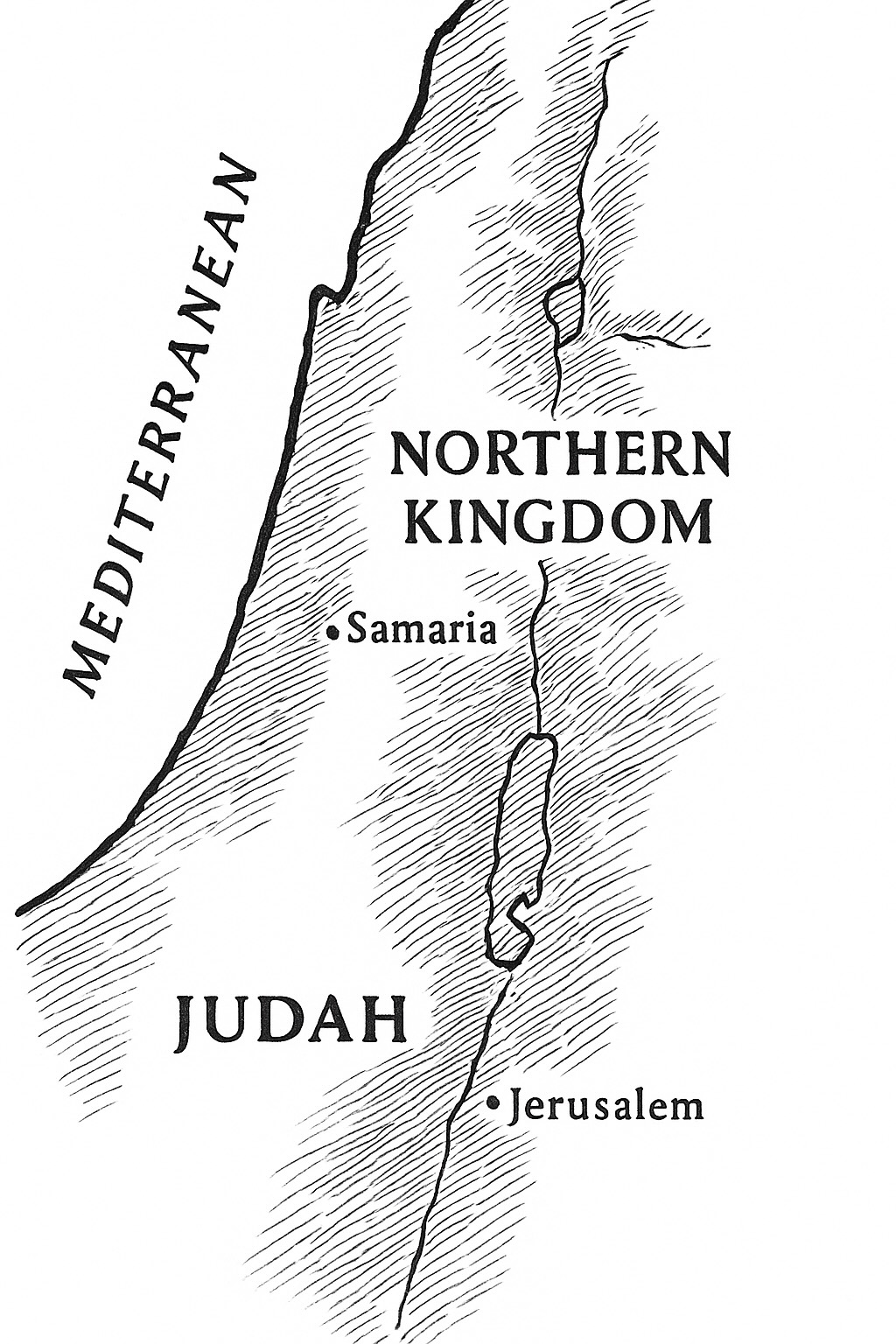StorylineSample


The Split Kingdom
931 BC
The books of 1 & 2 Kings, 1 & 2 Chronicles & most of the prophetic books: Isaiah–Zephaniah
Note of interest:
There can be some confusion in the term “Israel.” During the monarchy (and after the return of the exiles), this title refers to the nation of Israel, composed of all twelve tribes. After the split, it refers only to the northern Kingdom (ten tribes). The southern kingdom (the tribes of Judah, Benjamin, and Levi) is known as Judah.
Another note of interest:
God originally established the nation through the twelve sons of Jacob (renamed Israel), who became the heads of the twelve tribes. Later, Jacob adopted Joseph’s two sons, Ephraim and Manasseh, giving them each a full tribal inheritance (Genesis 48:5–6). In this way, Joseph received a “double portion” among the tribes of Israel.
- For these reasons, the tribal lists in Scripture sometimes vary:
- When Levi (the priestly tribe) is included, only one of Joseph’s sons (usually Ephraim) is counted to keep the number at twelve.
- When Levi is excluded (since they had no land inheritance but were set apart for priestly service), both Ephraim and Manasseh are listed, keeping the number at twelve again.
- So, the original twelve tribes came from Jacob’s sons, but with Joseph’s two sons added, the listings can shift depending on context—yet the symbolic number twelve is always preserved.
Now back to our storyline:
~ Before Israel became two nations, they shared one common history and one God.
After Solomon’s death in 931 BC, the kingdom was divided just as the Lord had prophesied to Solomon (1 Kings 11:9–13). It happened in this way: The people of Israel came to his son Rehoboam at Shechem and asked him to lighten the heavy burdens and taxes his father had placed on them. Rehoboam rejected the counsel of the elders, who advised gentleness, and instead followed the advice of younger men, vowing to make their yoke even heavier. As a result, the ten northern tribes rebelled and formed their own kingdom under Jeroboam, leaving Rehoboam with only Judah and Benjamin.
The northern kingdom, with its eventual capital of Samaria, quickly plunged into idolatry, setting up golden calves at Bethel and Dan. It was plagued by unstable rulers and spiritual and moral corruption.
Judah and Benjamin, with the Levites in Jerusalem, remained loyal to Rehoboam and became known as the kingdom of Judah. The southern kingdom, with its capital in Jerusalem, continued to worship at Solomon’s Temple. Judah fared better than Israel at times under God-fearing kings like Asa, Jehoshaphat, Hezekiah, and Josiah, yet many of its rulers also tolerated idolatry.
~ After the nation of Israel split into the northern and southern kingdoms, God anointed prophets to warn and guide His people. Israel (the northern kingdom) refused to repent. Judah (the southern kingdom) had moments of true reform but ultimately slid deeper into idolatry.
Significance
- Based on Rehoboam’s failure—though not as an absolute rule—those with greater life experience often give the best advice. Too often, we turn to the wrong people for counsel, and sometimes, even worse, we believe we don’t need advice at all and fail to seek godly counsel at all.
- Jesus warned His disciples that "Every kingdom divided against itself is laid waste, and a divided household falls" (Luke 11:17).
- We must not be misled: “Bad company corrupts good morals” (1 Cor. 15:33).
- The merciful God of Israel never stopped calling His people back to Himself, and He will always pursue us as well.
About this Plan

Just as shelves bring order to a closet, this Bible plan builds a powerful framework to clarify and connect our understanding of the events of the Bible as a whole. Each day becomes a shelf—organizing epic moments, unforgettable characters, the unfolding drama of God’s Word. Together, we will step into His unrelenting redemptive plan as our own story is woven into the Lord’s glorious plan.
More
Related plans

Deep Roots, Steady Faith

Parenting Through God’s Lens: Seeing Your Child the Way God Does

Marry Me

The Father Lens: Helping Your Kids See Who God Is Through Who You Are

The Invitation of Christmas

Even in the Shadows: Living With Depression

Where Are You? A Theology of Suffering

Real. Loved. Strengthened: 7 Days With God

The Single Season
